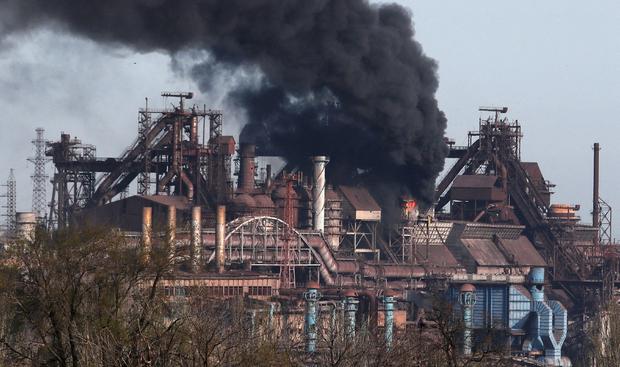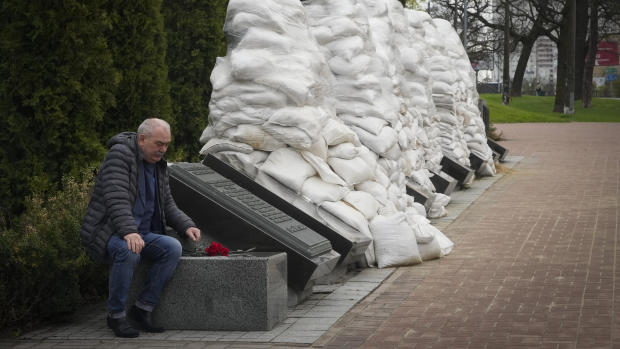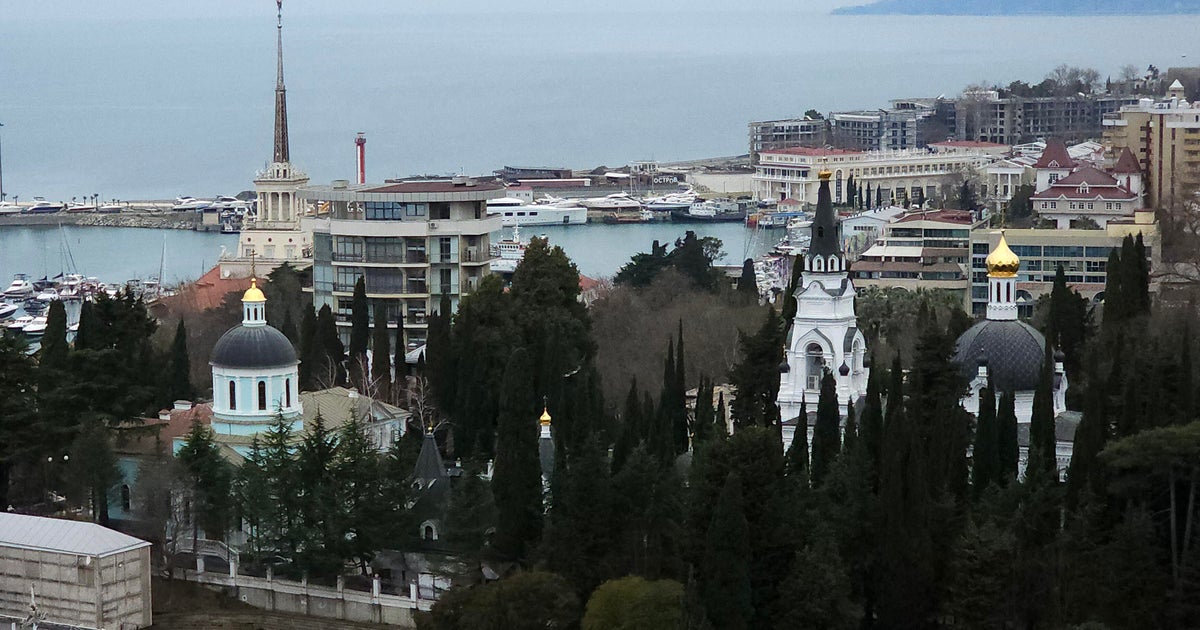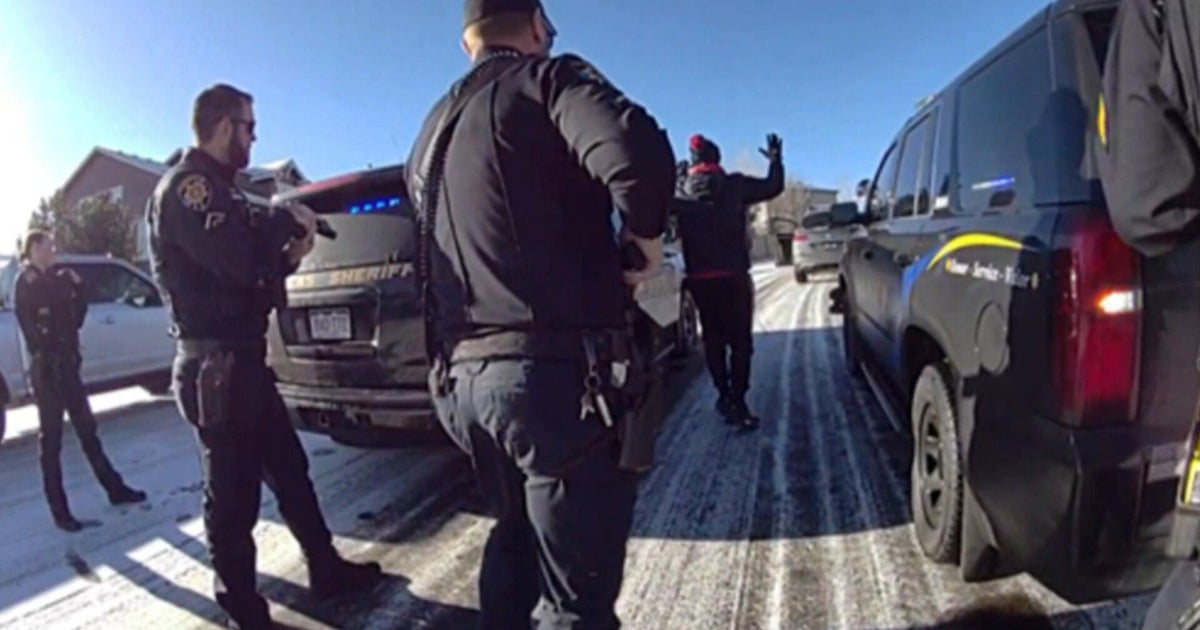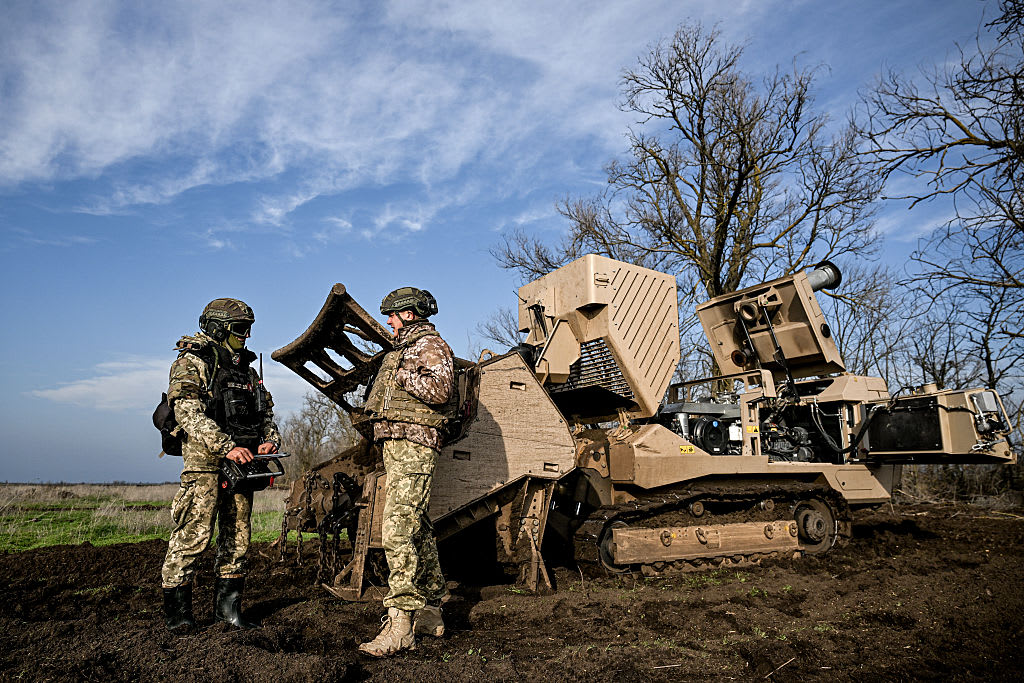Ukraine says Russia resorting to "gas blackmail" and threat of nuclear disaster as heaving fighting rages
Kyiv — Heavy fighting continued overnight in the south and east of Ukraine. In the besieged southern port city of Mariupol, Ukrainian officials said Russia had hit a sprawling steelworks plant with 35 airstrikes in just 24 hours. An estimated 2,000 Ukrainian forces are holed up at the Azovstal plant, along with about 1,000 civilians taking shelter there.
CBS News correspondent Chris Livesay has been talking with people caught up in the violence, and as he reports, energy is being used as a weapon in this war. Russia's state-run energy firm Gazprom said Wednesday that it had cut off the gas supply to Poland and Bulgaria because they were refusing to pay in Russian rubles. Ukraine called it the start of Russian "gas blackmail" aimed at its European allies.
NATO member Poland agreed, with Prime Minister Mateusz Morawiecki calling the gas cutoff "a direct attack" on his country and vowing that it would not give in to "this blackmail."
Livesay said Mariupol was still standing on Thursday, with Ukrainian fighters there holding out against Russia's overwhelming firepower. Elsewhere in the east, however, Ukraine acknowledged that Russian forces had managed to capture several villages in the Donbas region that has become the focus of the invasion — but not the only front.
As Ukraine fiercely fights back in the south and east, Livesay said a new front may be opening further west, directly south of Ukraine's capital along the country's border with Moldova.
For two days, mysterious explosions have rung out in Transnistria, a pro-Russian breakaway region of Moldova where Russia has based some of its own forces. Moldova, without naming names, has said the blasts were aimed at creating "pretexts for straining the security situation."
The worrying development comes as the global security situation grows increasingly fragile, with Russia repeatedly firing missiles right over Ukraine's nuclear power plants.
Ukrainian President Volodomyr Zelenskyy, saying Russia's actions had left him "speechless," accused Vladimir Putin on Tuesday of threatening to turn nuclear power into a weapon. He said it on the anniversary of the Chernobyl explosion that shot a fireball high into Ukraine's sky 36 years ago.
Amid the threat of Russian shelling, no light was allowed, save for some candles lit to honor the dead in the nearby town of Slavutych, which was built from scratch for the evacuees of that nuclear disaster.
But Slavutych's current Mayor Yuri Fomichov told Livesay that Russia's current invasion was "even more traumatic than the worst nuclear disaster in history."
When a Russian tank battalion occupied the Chernobyl plant, risking yet another catastrophe before retreating after a month, Fomichov himself was taken hostage. Enraged citizens rose up, waving Ukrainian flags and standing defiant before the occupiers.
Soldiers fired warning shots and stun grenades, but the residents refused to disperse until their mayor was freed and their town was liberated.
Many of them are now survivors of not one, but two historic tragedies in Ukraine. Resident Alexey told CBS News he was among those who witnessed both Chernobyl's reactor, and this war explode before him.
"We never expected either of them," he told Livesay. "Chernobyl 36 years ago, or Russia attacking its brothers today. I can't wrap my head around it."
All they can do is remember those lost in one nuclear disaster, and hope not to bear witness to another.
